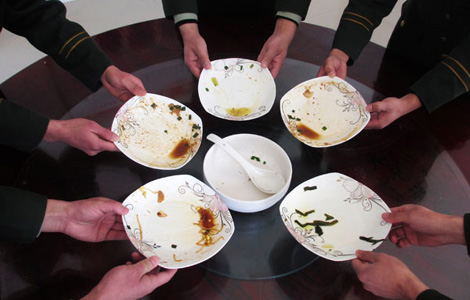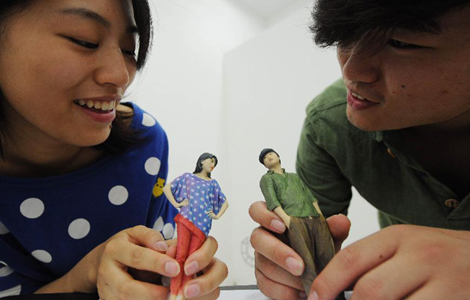Reflecting on rules that allow bad apples
Updated: 2013-04-03 07:15
By Li Yang (China Daily)
|
||||||||
Apple boss Tim Cook posted a letter on Apple's website in China on Monday in which he apologized for any misunderstandings that had led to the perception that Apple's attitude was arrogant in its dealings with Chinese consumers.
He said the complaints had prompted "deep reflection" and persuaded the company of the need to revamp its repair policies, boost communication with Chinese consumers and strengthen oversight of authorized resellers.
The statement came after the US company was subject to heavy media criticism and consumer ire following China Central Television's annual program marking International Day for Protecting Consumers' Rights, which accused the company of providing Chinese consumers with a lower standard of service than consumers in other countries.
According to Chinese rules on after-sales services for cellphones, the producers should provide consumers with a new cellphone in the first two weeks after sales when their former cellphone has any of the serious quality problems listed in the appendix of the rules. The consumers have the right to ask for a new cellphone after the first two weeks in one year only when the cellphones cannot work after repairing twice.
In practice, it is very difficult for Chinese consumers to get a new cellphone even in the first two weeks if they find their cellphones do not work well. They have to prove the cellphones' faults fall among the problems listed in the rules. The after-sales service staff would more likely choose to replace broken parts instead of providing consumers with a new one.
In fact, Apple sold about 35 million iPhones in the last two years in China, and few customers reported buying an iPhone with any of the serious quality issues that would entitle them to exchange the phone for a new one in the first two weeks under China's consumer rights regulations.
China's rules on post-sales services and cell phone product quality were introduced in 2001 and they have never been amended. Analysts have pointed out that the country's rules for post-sales service quality lag behind such rules elsewhere.
Apple may feel itself singled out because Apple provides Chinese consumers with a new iPhone but with the old back cover after the first two weeks, plus an extended warranty period of 90 days, while some other enterprises only offer free repair of the broken parts and a warranty period of 30 to 90 days on the Chinese market.
In his letter on Apple's China website Tim Cook goes further, abolishing the "keep the old back cover" policy and extending the warranty period after within-first-year repair for the new iPhone for one whole year, which meet with requirements of Chinese consumer protection regulations.
Some Chinese media have called Cook's statement a letter of apology, but I think it is a statement of Apple's "incomparable" service.
CCTV's consumer rights program, broadcast every year on March 15, is meant to serve the interests of consumers. But the most effective way of doing this would be to raise the country's service and quality benchmarks.
Unfortunately some of China's media have so far ignored the fact that China's rules, which are the fundamental guarantee of consumers' rights, are lower than those in some developed countries and allow monopolies to enrich special interest groups.
The State quality authority should open its eyes and follow the rapid global technological advancement keenly and amend the rules protecting consumers' rights. That it has the awareness to update its national quality standards and consumer rights' rules is of great importance to ensure domestic enterprises pursue more technological breakthroughs and offer better services for consumers.
Moreover, if a crisis initiated by the media has become a publicity coup for Apple, the media should draw the necessary lessons.
The author is a writer with China Daily. E-mail: liyang@chinadaily.com.cn
(China Daily 04/03/2013 page8)
Most Viewed
Editor's Picks

|

|

|

|

|

|
Today's Top News
Relationship 'relaunched'
Good start expected for summit
Xi, Mexican president discuss bilateral co-op
Cooperation to drive mutual growth
Chinese president arrives in Mexico for state visit
China is victim of hacking attacks
US to be largest trade partner
China joins fight against hacking
US Weekly

|

|















